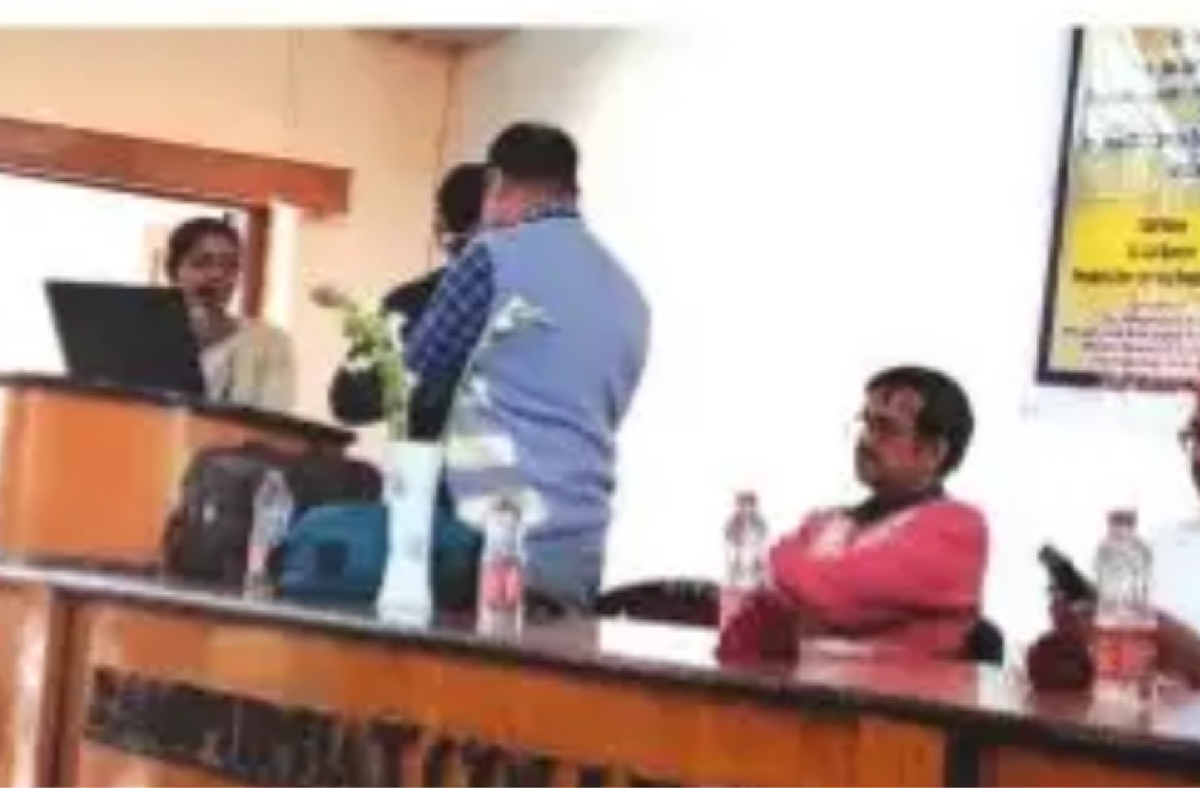Patanjali University receives A+ grade by NAAC; becomes highest-rated yoga university in India
Patanjali University aims to cultivate leadership qualities in young people across all spheres of life, said it's Chancellor Swami Ramdev.
In a bid to encourage selfemployment among students post-graduation, Rampurhat College in Birbhum district recently organised a seminar under the theme “Aquarium Fish Keeping, Management, and Entrepreneurship.”

College unveils aquatic business potential (photo:SNS)
In a bid to encourage selfemployment among students post-graduation, Rampurhat College in Birbhum district recently organised a seminar under the theme “Aquarium Fish Keeping, Management, and Entrepreneurship.” The event, held by the department of zoology, aimed to open up new avenues for students in the flourishing industry of ornamental fish culture. The National Assessment and Accreditation Council (NAAC) has been actively promoting self-employment initiatives for college graduates, fostering a spirit of entrepreneurship beyond traditional career paths.
The seminar highlighted the vast opportunities and strong market demand in the field of ornamental fish culture, captivating the attention of both students and faculty members. Kallol Mukhopadhyay, the district fishery officer of Birbhum, shared valuable insights into the scientific breeding, feeding, and management of various types of colourful fishes. The presentation featured popular species such as swordtail, goldfish, gourami, guppy, killi, platy, molly, and many more, using engaging Power Point visuals.
Abul Hasnat, fishery extension officer of Rampurhat-I block, elucidated on different subsidised government schemes aimed at promoting ornamental fish culture. Notably, the Integrated Ornamental Fish Breeding & Rearing Unit and Ornamental Brood Bank were highlighted, with detailed information about eligibility criteria, unit costs, and government assistance percentages.
Advertisement
The government provides financial support, with a 40 per cent subsidy for General candidates and 60 per cent for SC/ST/women of the project cost. The central government contributes 60 per cent, and the state government contributes 40 per cent, with the remainder being the beneficiary’s contribution or institutional finance. Funds are released in instalments, based on the project cost, with a back-end assistance mechanism.
Various income-generating activities related to ornamental fish culture, such as fish feed mixing units, ornamental plant cultivation, and manufacturing equipment, were also emphasized as profitable ventures. Dr Prabal Kr Sinha, the principal of Rampurhat College, addressed the students, encouraging them to explore this new economic activity and tap into the untapped market for self-employment.
Dr Rajrosree Roy, head of the zoology department, underscored the importance of coloured fish culture as an alternative livelihood, playing a vital role in sustainable income generation and ensuring food security and empowerment, particularly for women. She emphasized the need for basic knowledge and skillbuilding training for those entering the field.
Advertisement